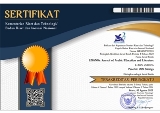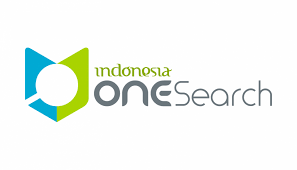The Effectiveness of Problem-Based Learning on Advanced Reading Comprehension Skill in Online Arabic Language Teaching
Abstract
Keywords
Full Text:
PDFReferences
Ainin, M. (2017). Efektifitas Penggunaan Pendekatan Pembelajaran Berbasis Masalah (Problem Based Learning) dalam Pembelajaran Matakuliah Metodologi Penelitian Bahasa Arab. Bahasa Dan Seni: Jurnal Bahasa, Sastra, Seni Dan Pengajarannya, 45(2), 197–207. https://doi.org/10.17977/um015v45i22017p197
Ali, S. S. (2019). Problem Based Learning: A Student-Centered Approach. English Language Teaching. https://doi.org/10.5539/elt.v12n5p73
Aly, A. (2017). Pengembangan Pembelajaran Karakter Berbasis Soft Skills di Perguruan Tinggi. Ishraqi, 1(1), 18–30. https://doi.org/10.23917/ishraqi.v1i1.2926
Arikunto, S. (2010). Prosedur Penelitian Suatu Pendekatan Praktik. Jakarta: Rineka Cipta.
Aslan, S. A., & Duruhan, K. (2020). The Effect of Virtual Learning Environments Designed According to Problem-Based Learning Approach to Students’ Success, Problem-Solving Skills, and Motivations. Education and Information Technologies. https://doi.org/10.1007/s10639-020-10354-6
Barrows, H. S. (1983). Problem-Based, Self-directed Learning. JAMA: The Journal of the American Medical Association, 250(22), 3077–3080. https://doi.org/10.1001/jama.1983.03340220045031
Camp, G., van het Kaar, A., van der Molen, H., & Schmidt, H. (2014). PBL : Step by Step a Guide for Students and Tutors. Rotterdam: Institut of Psychology, Erasmus University. Retrieved from https://www.eur.nl/sites/corporate/files/PBL_step_by_step_guide_0.pdf
Charoensakulchai, S., Kantiwong, A., & Piyaraj, P. (2019). Factors Influencing Problem-Based Learning: Students’ and Teachers’ Perspectives. MedEdPublish, 8(3), 1–9. https://doi.org/10.15694/mep.2019.000173.1
Harsono. (2008). Sudent-Centered Learning di Perguruan Tinggi. Jurnal Pendidikan Kedokteran Dan Kesehatan Indonesia, 3(1), 4–8.
Haryu. (2009). Soft Skill Dan Character Building Mahasiswa. Tadrîs, 4(2), 276–287.
Hermawan, I. (2019). Metodologi Penelitian Pendidikan (Kualitatif, Kuantitatif dan Mixed Method). Kuningan: Hidayatul Quran. Retrieved from https://books.google.co.id/books?id=Vja4DwAAQBAJ
Hidayah, M., Irawati, R. P., & Elmubarok, Z. (2013). Pengoptimalan Keterampilan Membaca Bahasa Arab Dengan Model Pembelajaran Tutor Sebaya Di Kelas VII H MTs Negeri Kendal Tahun 2012/2013. Lisanul’ Arab: Journal of Arabic Learning and Teaching, 2(1), 17–22. https://doi.org/10.15294/la.v2i1.2549
Hursen, C. (2020). The Effect of Problem-Based Learning Method Supported by Web 2.0 Tools on Academic Achievement and Critical Thinking Skills in Teacher Education. Technology, Knowledge and Learning, (123456789). https://doi.org/10.1007/s10758-020-09458-2
Karaoğlu, N., & Seker, M. (2011). Looking for Winds of Change with a PBL Scenario about Communication and Empathy. HealthMED, 5, 515–521.
Krishnamoorthy, K. (2020). Wilcoxon Signed-Rank Test. In Handbook of Statistical Distributions with Applications (pp. 339–342). Chapman and Hall/CRC. https://doi.org/10.1201/9781420011371-34
Malmia, W., Makatita, S. H., Lisaholit, S., Azwan, A., Magfirah, I., Tinggapi, H., & Umanailo, M. C. B. (2019). Problem-based learning as an effort to improve student learning outcomes. International Journal of Scientific and Technology Research. https://doi.org/10.5281/zenodo.3457426
Mishra, L., Gupta, T., & Shree, A. (2020). Online Teaching-Learning in Higher Education during Lockdown Period of COVID-19 Pandemic. International Journal of Educational Research Open, 1, 100012. https://doi.org/10.1016/j.ijedro.2020.100012
Muganga, L., & Ssenkusu, P. (2019). Teacher-Centered vs. Student-Centered: An Examination of Student Teachers’ Perceptions about Pedagogical Practices at Uganda’s Makerere University. Cultural and Pedagogical Inquiry, 11(2), 16–40. https://doi.org/10.18733/cpi29481
Mustofa, R. F., & Hidayah, Y. R. (2020). The Effect of Problem-Based Learning on Lateral Thinking Skills. International Journal of Instruction. https://doi.org/10.29333/iji.2020.13130a
Nazir, M. (2005). Metode Penelitian. Bogor: Ghalia Indonesia.
Ngeow, K., & Kong, Y.-S. (2001). Learning To Learn: Preparing Teachers and Students for Problem-Based Learning. ERIC Digest. Bloomington: ERIC Clearinghouse on Reading, English, and Communication, Indiana University. Retrieved from ERIC Clearinghouse on Reading, English, and Communication, Indiana University website: http://www.eric.ed.gov
Program Studi S1 Pendidikan Bahasa Arab. (2020). Kurikulum PBA UNNES 2020 (Kampus Merdeka) - Pendidikan Bahasa Arab UNNES. Semarang: Universitas Negeri Semarang. Retrieved from http://pba.unnes.ac.id/kurikulum-pendidikan-bahasa-arab-universitas-negeri-semarang/
Rasoal, C., & Ragnemalm, E. L. (2011). Does Problem Based Learning affect empathy? Celebrating the Past and Embracing the Future: Evolution and Innovation in Problem Based Learning, 76–80. Retrieved from https://www.ida.liu.se/~evara17/PBLEmpathyFinalVersion.pdf
Saleh, M. (2013). Strategi Pembelajaran Fiqih dengan Problem-Based Learning. Jurnal Ilmiah Didaktika, 14(1), 190–220. https://doi.org/10.22373/jid.v14i1.497
Schmidt, H. G. (1983). Problem-Based Learning: Rationale and Description. Medical Education, 17(1), 11–16.
Shadish, W., Cook, T., & Campbell, D. (2002). Experimental and Quasi-Experimental Designs for Generalized Causal Inference/William R. Shedish, Thomas D. Cook, Donald T. Campbell. Boston: Houghton Mifflin,. Retrieved from http://repository.fue.edu.eg/xmlui/bitstream/handle/123456789/3345/339.pdf?sequence=1
Solihah, M., & Mashinta, A. (2019). Penggunaan Problem Based Learning untuk Meningkatkan Kemampuan Pemecahan Masalah Siswa Sekolah Dasar pada Pembelajaran IPA. Elementary School: Jurnal Pendidikan Dan Pembelajaran Ke-SD-An, 6(1). https://doi.org/10.31316/ESJURNAL.V6I1.102
Sri Suryanti, H. H., & Supeni, S. (2019). A problem based learning (PBL) model in developing students’ soft skills aspect. International Journal of Higher Education, 8(8), 62–69. https://doi.org/10.5430/ijhe.v8n8p62
Syarif, H., & Kamil, H. (2013). Perbandingan Efektifitas Metode Seven Jumps dengan Metode Interactive Skills Station (ISS) pada Mahasiswa PSIK FK Unsyiah. Idea Nursing Journal, IV(2). Retrieved from http://jurnal.unsyiah.ac.id/INJ/article/view/1560
Waraulia, A. M. (2016). Penerapan Metode Problem Based Learning Dan Media Gambar Dalam Pembelajaran Membaca Cerita. Premiere Educandum : Jurnal Pendidikan Dasar Dan Pembelajaran, 6(1), 122–134. https://doi.org/10.25273/pe.v6i01.301
Wood, D. F. (2003). ABC of Learning and Teaching in Medicine: Problem Based Learning. BMJ. https://doi.org/10.1136/bmj.326.7384.328
Yew, E. H. J., & Goh, K. (2016). Problem-Based Learning: An Overview of its Process and Impact on Learning. Health Professions Education, 2(2), 75–79. https://doi.org/10.1016/j.hpe.2016.01.004
DOI: https://doi.org/10.18326/lisania.v5i1.1-18
Refbacks
- There are currently no refbacks.
Copyright (c) 2021 Mohamad Yusuf Ahmad Hasyim
View My Stats







